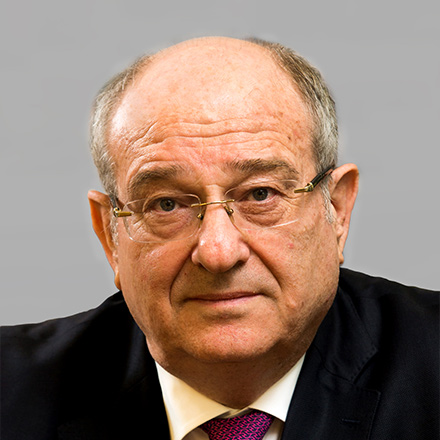Prof. Peretz Lavie joined the Technion Rappaport Faculty of Medicine in 1975 where he served as Dean from 1993-1999. In 2001 he was appointed as the Vice President of External Relations and Resource Development. Since October 1st 2009 Prof. Lavie has been serving as President of the Technion. In the summer of 2017, he assented to a request by the Technion Council to extend his term in office for another two years. In doing so he became the first President in the history of Technion to be elected for a third term and will serve a total of ten years in office.
Under his leadership the Technion stands among the top 100 world class research universities, distinguished by academic excellence, interdisciplinary research strategy, innovative globalization and financial stability. During his tenure, the Technion has recorded a number of impressive achievements led by the recruitment of more than 200 new faculty members, which involved raising extensive resources. By establishing the “Yanai Prize”in academic education, Prof Lavie has led a transformational change in the quality of teaching on campus and in student satisfaction.
Prof Lavie conceived and played a principal role in the Technion’s expansion to New York where, together with Cornell University, the Jacobs Technion Cornell Institute was opened on Roosevelt Island. Similarly, in China the Technion established the Guangdong Technion-Israel Institute of Technology in Shantou. He led a major campaign to increase the number of dormitories and junior faculty apartments on campus, as well as initiating numerous renovation projects, such as the expansion of research and teaching facilities and the Technion gates.
Prof. Lavie is considered one of the founders of sleep medicine, publishing more than 400 scientific articles and eight books in the field of sleep research and sleep disorders. His book “The Enchanted World of Sleep” has been translated into 15 languages. Prof. Lavie’s research has won many prizes, including the EMET prize in medicine (2006), the most prestigious prize for academic achievements in Israel. He is the founder and co-founder of 5 companies that develop and produce medical devices for sleep medicine and cardiology and provide diagnostic services. He is married to Dr. Lena Lavie, a cell biologist; they have 3 children and 7 grandchildren.
Click here for abstract:
 Basic Research and Applied Research are Two Sides of the Same Coin
Basic Research and Applied Research are Two Sides of the Same Coin
Traditionally there is a clear distinction between basic and applied research, the first aimed at understanding nature and its underlying laws and the second aimed at developing useful technologies for the benefit of mankind. However, in recent years the borders between the two types of research have blurred. To play a leading role in economic development and in building ecosystems of innovation and entrepreneurship universities must encourage faculty members to be involved in both types of research, and must instill in their students the skills and motivation required by both. The Technion-Israel Institute of technology, is an excellent example of an academic institute that has played a major role in shaping a national ecosystem of innovation and entrepreneurship. The roots of Israel as a “start-up nation” have been planted in the Technion. From its establishment in the early 20th century the Technion has equally valued both types of research, and has seen service to society and mankind as one of its prime missions. Thus, Technion researchers have been involved in nationally important applied projects, and emphasized and encouraged technology transfer by providing its faculty members various incentives and mechanisms to commercialize their discoveries and patents that have practical application. Moreover, students’ professional education has been expanded to develop skills needed for innovation and entrepreneurship. The presentation will discuss the necessary ingredients to establish such a model university.


